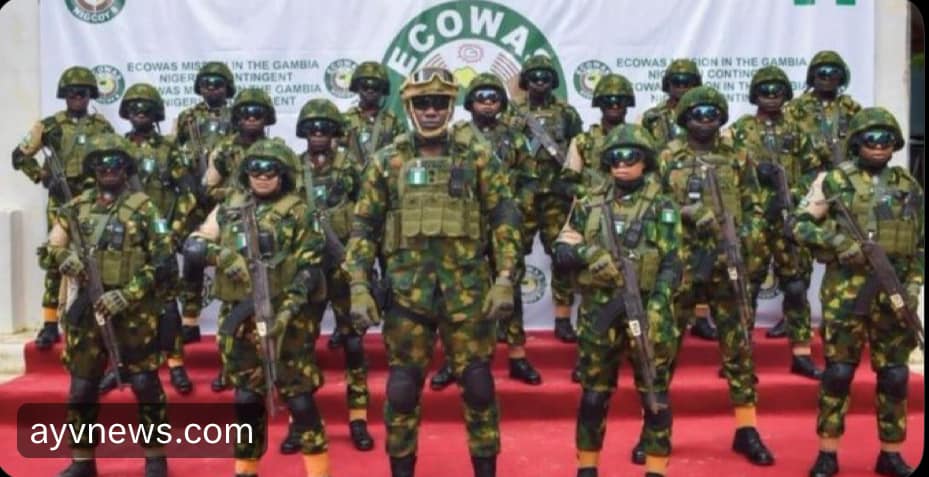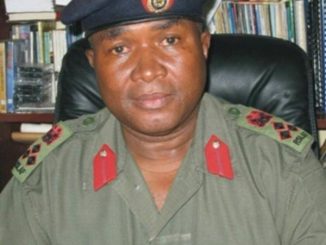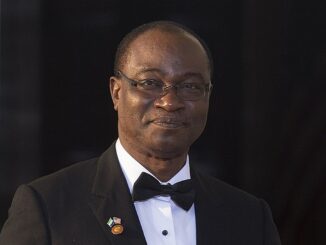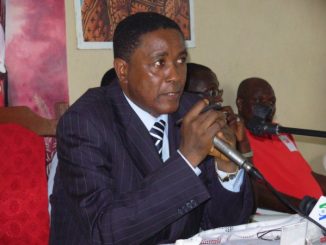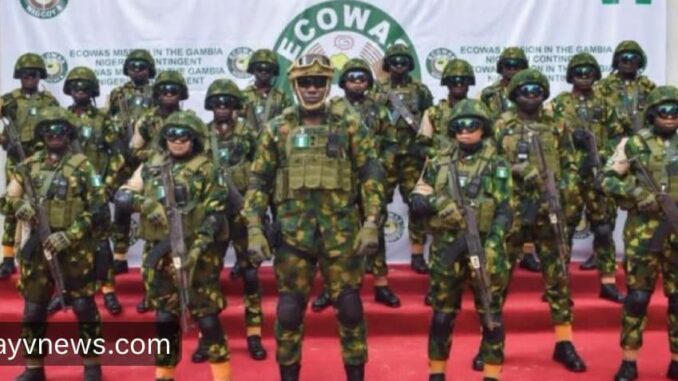
By Kemo Cham
The decision was announced at end of the 64th Ordinary Session of the Authority of Heads of States and Government of the regional bloc held in the Nigerian capital, Abuja.
The heads of state in their Communique “strongly condemned” the attempted coup and called on the government of President Julius Maada Bio to pursue justice through the due process.
“The Authority instructed the ECOWAS Commission to continue to support Sierra Leone. It further directs the Commission to facilitate the deployment of an ECOWAS Security Mission in Sierra Leone to help stabilize the country,” the heads of state said in their communique at the end of the summit.
ECOWAS has been engaged in Sierra Leone since last month’s incident. It even sent a delegation headed by the ECOWAS Commission President Dr Omar Allieu Turay, which discussed the possibility of deploying a standby force with the Bio Administration.
The summit comes in the face of rising tension in the region and concerns over growing military takeovers.
Almost at the same time as the situation in Sierra Leone was unfolding, the government of Guinea Bissau announced what it now says was an attempted coup.
Many political analysts have blamed the spate of military takeovers in the region on poor governance, as illustrated in disputed elections.
The leaders appeared to acknowledged this fact, as illustrated by the call on the ECOWAS Commission to undertake “deep reflection with stakeholders on the relationship between electoral processes, democracy and development and make actionable recommendations on increasing the transparency and credibility of elections and promoting inclusive development and accountable governance.”
About 10 heads of state and government attended the summit which tool place at the presidential palace in Abuja.
On the agenda for the discussion were the situations in Niger, Senegal, Gambia, Sierra Leone, among other countries, as well as the fight against terrorism in the sub region.
Among the heads of state was President Julius Maada Bio, who was selected by his peers as part of a committee charged with engaging Niger’s National Council for the Safeguard of the Homeland (CNSP) Junta and other stakeholders to agree on a short transition roadmap for the country. The committee also comprises the presidents of Togo and Benin.
Also in attendance at the summit from the Mano River Union is Liberian President George Weah. It’s Mr Weah’s last summit of the West African bloc as head of state, after losing in elections last month. He is expected to step down next month.
Weah was praised by his peers for his “statesmanship” in conceding defeat to former Vice President Joseph Boakai.
Guinea remains suspended from ECOWAS since the 2021 coup that removed former President Alpha Conde.
Earlier in a statement at the opening ceremony of the even, ECOWAS chairman and host Nigerian President Bola Ahmed Tinubu, urged fellow leaders to prioritize good governance for the people, noting that it serves as a catalyst for socio-economic transformation and development.
‘’By providing good governance that tackles the challenges of poverty, inequality and other concerns of the people, we would have succeeded in addressing some of the root causes of military intervention in civilian processes in our region,” he said.
President Tinubu emphasised that the goal of ECOWAS to achieve a fully integrated region cannot be realised without peace, security, and stability.
“This is why the region, as far back as 2001, recognized democracy as the only form of governance capable of fostering development, inclusiveness and social well-being of our people. It is on this basis that the West African region became the first part of the continent to fully embrace democratization, by establishing comprehensive frameworks with legal protocols that emphasize respect for Democracy, Good Governance, Human Rights, and the Rule of Law,” he said.
The ECOWAS Chairman went on to say that it was in furtherance of this objective that the leaders subscribed to the protocols and the conditions attached, which stipulated ‘’specific punitive measures to be taken against any Member State opting for an unconstitutional change of government.”
But the Nigerian leader stressed that ECOWAS was still committed to re-engaging with the countries under military rule on the basis of realistic and short transition plans that can deliver democracy and good governance.
“On our part, we should be prepared to provide them with technical and material support, to ensure the achievement of these strategic goals,” he said.
On Sierra Leone and Guinea Bissau, Tinubu urged fellow heads of state to pay attention to protecting democracy, reiterating the bloc’s zero tolerance to unconstitutional changes of government.
“I urge all of us to stand strong and be highly committed in the face of any challenge in Sierra Leone and Guinea Bissau. The message must go down clearly that we support a democratically elected government, not an unconstitutional exercise,” he said.
JOHN THOMBO BANGURA WRITES

